Organic Climbing – Building the best bouldering and climbing gear and doing it all in the USA.
Josh Helke started Organic Climbing 12 years ago in his kitchen in Wyoming because he wanted a better and more durable crash pad. Since then, Organic Climbing has grown to be one of the best crash pad and climbing gear manufacturers in the industry. What's perhaps more interesting is that Josh has achieved all this by never compromising his quality standards and by insisting that Organic Climbing build its products in the USA.
Organic Climbing is one of the most well-respected crash pad manufacturers in the world. When did you start the company and why crashpads?
Organic Climbing: I started in 2004 in Laramie WY. I had been involved in the outdoor industry design world for some time as a sponsored athlete, hold-shaper, etc. During this period a newcomer to the climbing shoe market offered a dirt-cheap crash pad as a billboard for their shoe brand and almost overnight that pad divided the bouldering industry. Crash pads were between $185-$225 for a standard size pad. Now this brand was offering a lower quality pad for half that price and writing it off as an advertising expense. Almost every company in the industry freaked out and started building lower quality pads to compete. At the time, my now wife and I were living on the road. We were bouldering and working on her geology fieldwork, and we found out that those pads that new brand had given us were not very durable – especially when used on a daily basis. We quickly realized that there was an opportunity for someone to make a quality crash pad. That's why we launched Organic Climbing.
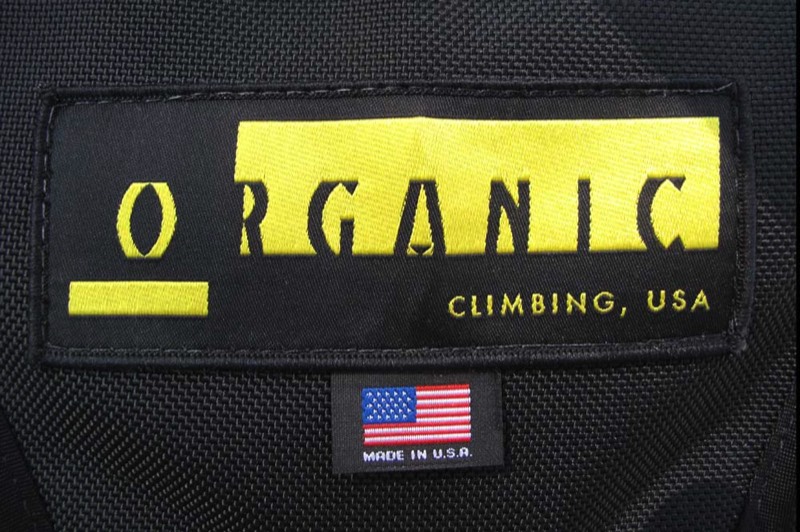
Organic Climbing
What do you think makes Organic Climbing pads so desirable to so many climbers?
Organic Climbing: I think climbers were initially drawn to us because we were the first company to offer bright colors and custom designs. This really helped us stand out from other manufacturers. But once folks started using our pads, they realized that they were also super-high quality long-lasting pads. I think now, along with the colours, most people think of ORGANIC as a company that makes super-high quality pads. I suspect that folks also like that we are a small independently owned company with a 12-year history of supporting our sport, our customers, and our employees.
Your commitment to sustainable manufacturing is well known, but there may still be a few climbers that don’t know the details of how you build Organic Climbing products. Would you like to share your philosophy?
Organic Climbing: We are proud to build all our products in our workshop in the USA. This helps us reduce our shipping footprint. We also support our local community by creating job opportunities that pay employees a fair wage. These folks then spend their money locally, which helps further support our community. We recycle our cutting scraps into the unique colour accents found on all our products. In most sewing factories, these scraps are thrown out – we think our solution is better. We use an open cell foam formulated with a percentage of soy-based ingredients to decrease our consumption of petrol-based chemicals. We also believe in using the highest quality foams and fabrics in all our products. This not only ensures that our gear last longer, but it also prevents it from prematurely going into landfill.
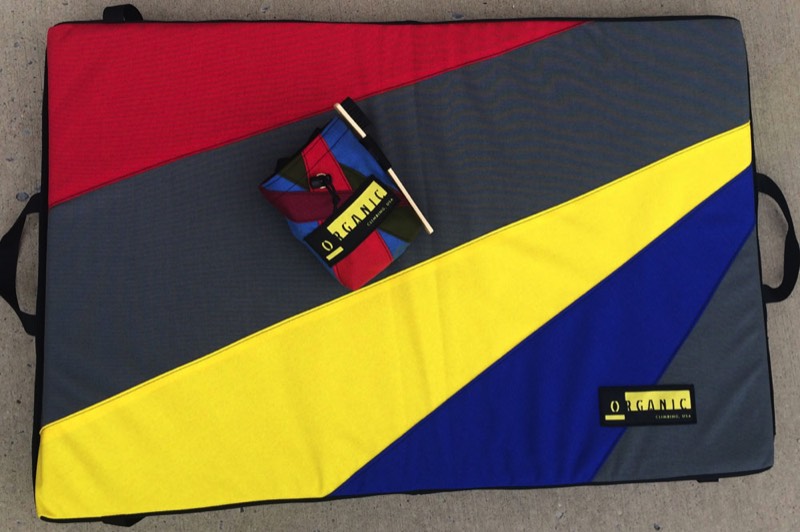
Organic Climbing
You don’t make inexpensive price-point products. How do you manage to stay open in this industry when more and more climbers seem to only care about buying inexpensive (cheap) gear.
Organic Climbing: For 12 years, all our products have stayed at the same price, even though our foam and fabrics costs have increased. This has forced us to go back to the drawing board, look at our production and figure out ways we can improve our manufacturing. We've found ways to make up the cost difference by becoming a better manufacturer. So while our pads are not the cheapest, they are now far from being the most expensive. And we've achieved this value without compromising the quality. We are very proud of this achievement. Through 12 years of product use, feedback and word-of-mouth people know they can trust our pads. And because we stand behind our products, the decision to spend a little more for our pads is easier. In fact, buying one of our pads will be cheaper in the long run as you won't need to replace it often.
I suspect that you have a hard time not blowing a gasket when you hear someone dismissively say, “It’s just a crash pad.” Care to explain what goes into making a good versus mediocre pad?
Organic Climbing: Love. Honestly, you need to love the sport and you have to love the process of building good gear. It's not just about selling something. It's about making a positive change in the world and offering a product we believe in and personally want to use.
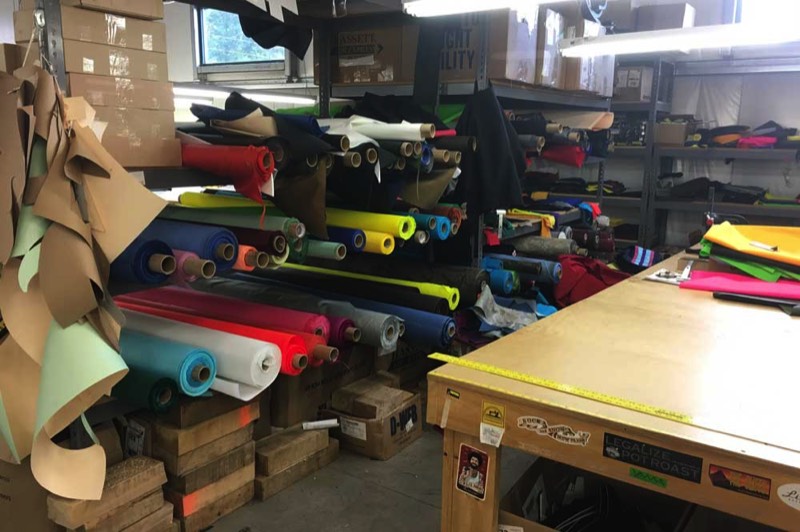
Organic Climbing
If imitation is the sincerest form of flattery, you must be pretty psyched. How do you feel about some of these new companies that are building products that have the Organic Climbing "look", but perhaps without the Organic Climbing quality?
Organic Climbing: When you pride yourself on your work and individuality, it can be a bit frustrating to see another company try and do the same thing, but with less care and commitment. Hell, we've had some companies cut apart our stuff and use it as patterns for their product. I started Organic Climbing because I could not find a product that met my needs. I didn't do because I wanted to be cool. It seems today that the hipster thing to do is start a company making "stuff" (while wearing the obligatory leather aprons and sporting perfectly coiffed beards). I'm all for folks making cool new gear, I just sometimes wish that they were a little more creative. It would help push the industry forward.
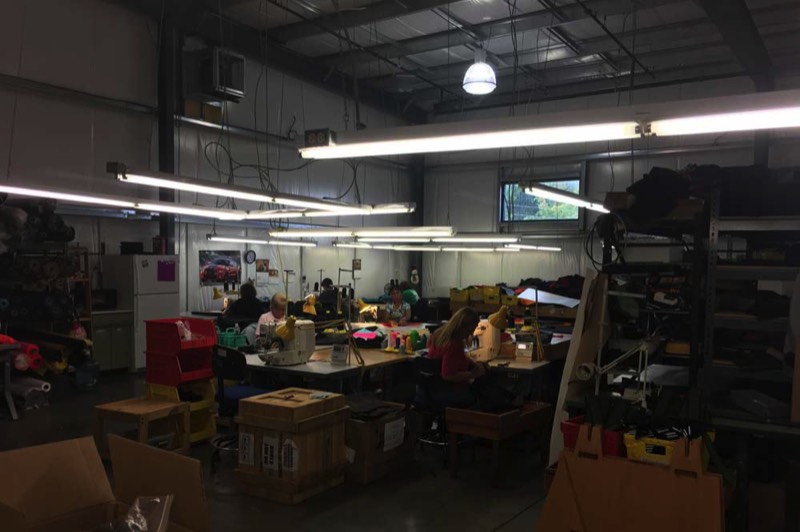
Organic Climbing
From the very beginning, there have been a few retailers that have been very supportive of Organic. Want to take a few minutes and tell us who they are and why you think they’re such big fans of what you do?
Organic Climbing: We are very lucky to work with so many amazing retailers, but there are a few that really stand out: Rock and Snow in New Paltz, The Cliffs Climbing Gyms in New York, Boulderz Gym in Toronto, Vertical Endeavors Gyms, Touchstone Climbing Gyms, Rock Creek in Tennessee, Wilsons East Side Sports in Bishop, Denver Bouldering Club and Earth Treks. These shops have been with us for over 10 years. In Canada, we are thankful for the awesome people at Boulderz in Toronto, The Hive Gyms, Climb On in Squamish, and the MEC stores in Montreal and Toronto. These, along with many other shops share our vision of bringing a quality climbing products to the market.
As a manufacturer, are there any particular climbing companies you especially respect or have been influential in how you operate Organic?
Organic Climbing: I have had a very long relationship with my good friend Clark Shelk who started Cordless/Revolution/Pusher, the now closed brands that put bouldering on the map for the outdoor industry. I have a ton of respect for him. He taught me so much over the years. I really respect the Eames and their design work. They focussed on creating durable products with timeless lines that were (at the time) affordable to the middle-class. I also really respect Pointer Brand clothing/LC King Manufacturing out of Tennesse. It's a multi-generation maker of jeans and workwear that offers a gorgeous, high-quality USA-made product for a fair price.
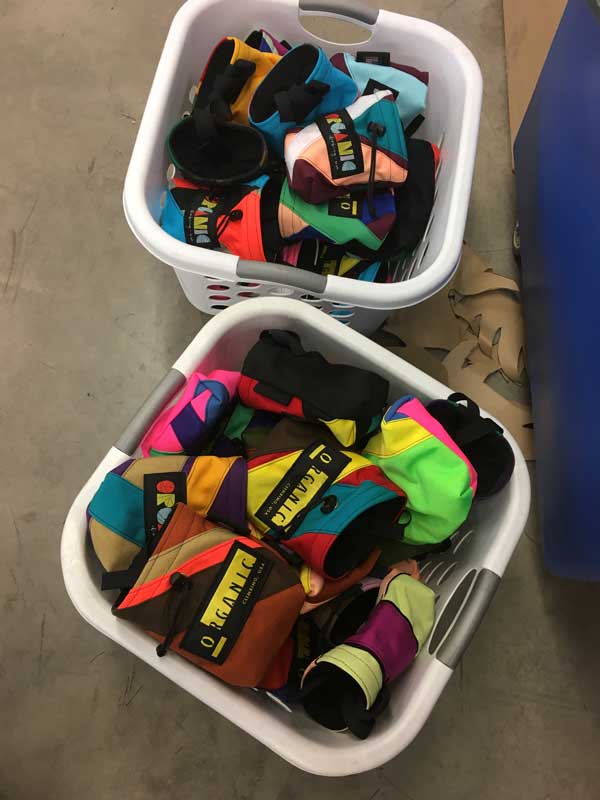
Organic Climbing
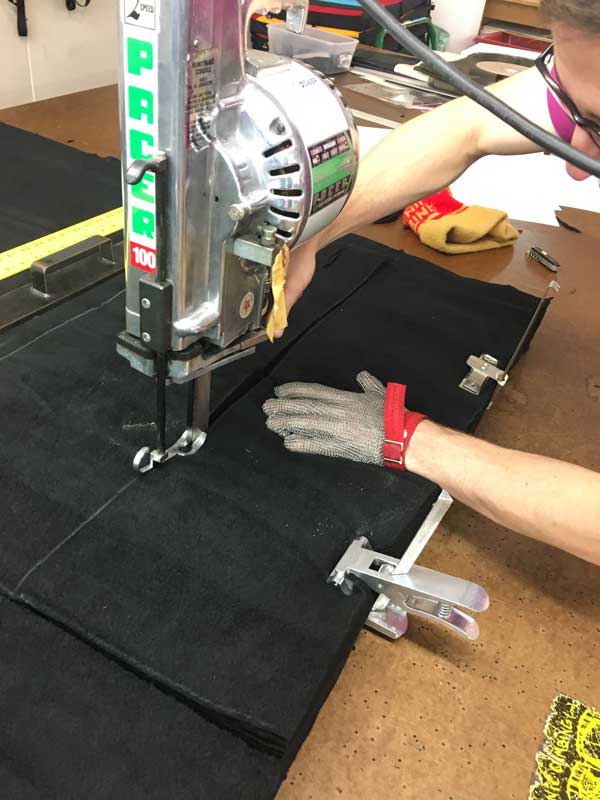
Organic Climbing
The Organic product line has grown over the last few years. What are some of your favourite new items?
Organic Climbing: I still love my 12-year old classic Simple Pad and our Roll Down Backpack. I live in our Jeans and retro beanie, and when sport season comes around, I swear by the Spot Pad that we are now building from our friends at Pusher. I never boulder without our Lunch Bag chalk bucket – I love its timeless simplicity and functionality.
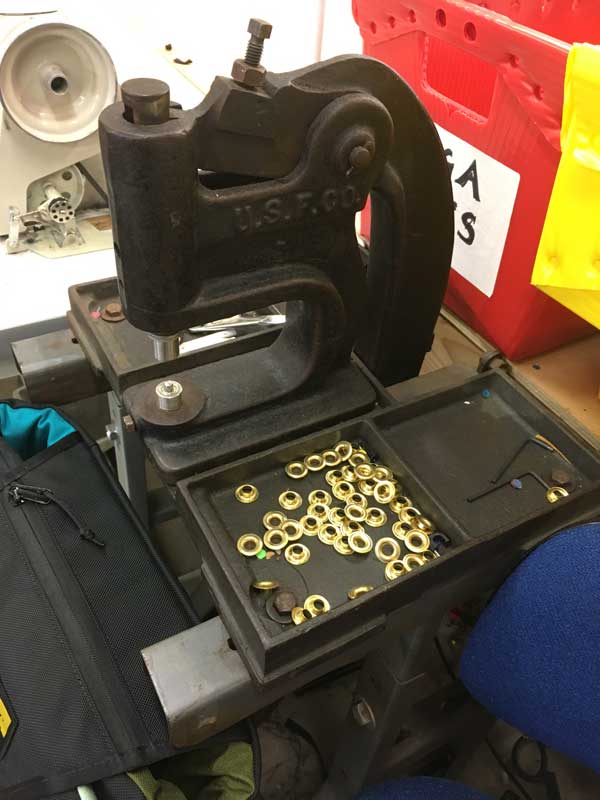
Organic Climbing
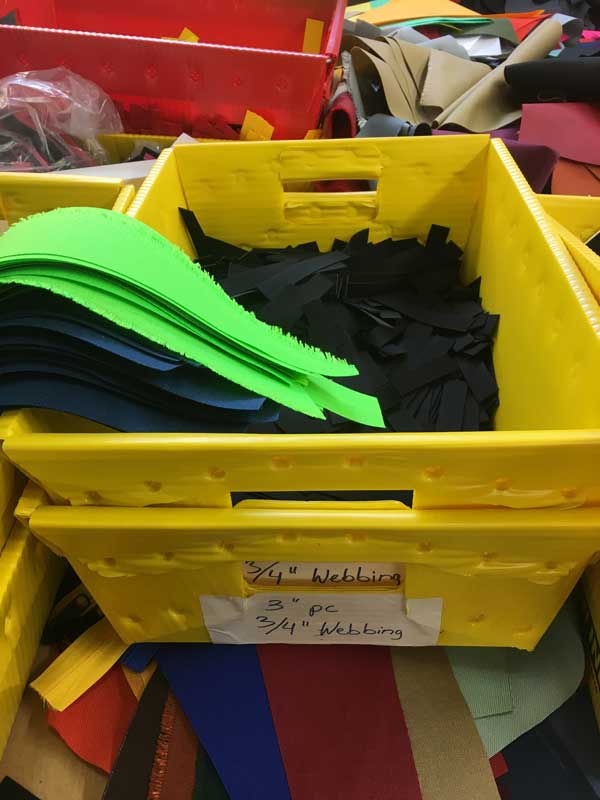
Organic Climbing
Other than complete global domination of the bouldering industry (just kidding), what are your future plans for Organic from both a company and product perspective?
Organic Climbing: We were given a really good deal on a large amount of clothing sewing machines (these are different than what we currently use to sew bags and pads) from a local workwear company in our town that closed last December. I am very excited to expand our product line with some one-of-a-kind Organic Climbing-style clothing!
You can find out more about Organic Climbing at https://organicclimbing.com/


